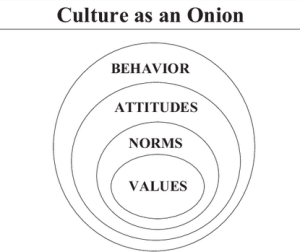Cultural intelligence (CQ) plays a crucial role in international trade negotiations. It refers to the ability to understand and navigate cultural differences effectively. In the context of trade negotiations, where parties from diverse cultural backgrounds come together, having a high level of cultural intelligence can enhance communication, build trust, and contribute to the overall success of the negotiations.This analysis focuses on some key aspects of cultural intelligence in international trade negotiations:

Cultural Intelligence in International Trade Negotiations
-
Table of Contents
ToggleUnderstanding Cultural Nuances:
- Recognize and respect cultural nuances related to communication styles, negotiation approaches, and decision-making processes. Different cultures may have varying levels of directness, formality, and reliance on relationship-building.
-
Building Trust:
- Trust is a critical component of successful negotiations. Understanding the cultural factors that influence trust-building can help negotiators establish rapport and credibility. For example, in some cultures, personal relationships and trust-building precede business discussions.
-
Effective Communication:
- Tailor communication styles to the cultural preferences of the negotiating partners. This includes being mindful of language nuances, non-verbal cues, and the importance of hierarchy in communication.
-
Adapting Negotiation Styles:
- Recognize that negotiation styles can vary significantly across cultures. Some cultures may prefer a collaborative and relationship-oriented approach, while others may adopt a more competitive and task-focused strategy. Adapt your negotiation style to align with the cultural expectations of the other party.
-
Cross-Cultural Team Dynamics:
- If negotiations involve teams from different cultural backgrounds, understanding how to manage cross-cultural team dynamics is crucial. Foster an inclusive and respectful environment that values diverse perspectives.
-
Cultural Sensitivity:
- Be aware of potential cultural pitfalls and avoid inadvertently causing offense. Sensitivity to cultural taboos, customs, and etiquette can prevent misunderstandings that may negatively impact the negotiation process.
-
Time Orientation:
- Recognize the varying attitudes towards time in different cultures. Some cultures may place a high value on punctuality and efficiency, while others may prioritize a more flexible and relational approach to time.
-
Conflict Resolution:
- Understand how different cultures approach conflict resolution. Some cultures may prefer direct confrontation, while others may opt for indirect or harmonious methods. Adapt your approach to align with the cultural norms of the negotiating partners.
-
Cultural Due Diligence:
- Conduct thorough cultural due diligence before entering negotiations. Understanding the cultural, social, and political context of the other party can provide valuable insights that inform negotiation strategies.
-
Continuous Learning:
- Cultivate a mindset of continuous learning about different cultures. Stay informed about global trends, cultural shifts, and updates that may impact international trade negotiations.
In summary, cultural intelligence is a key factor in navigating the complexities of international trade negotiations. Developing and applying cultural intelligence can foster better relationships, facilitate effective communication, and contribute to successful outcomes in a global business environment.
